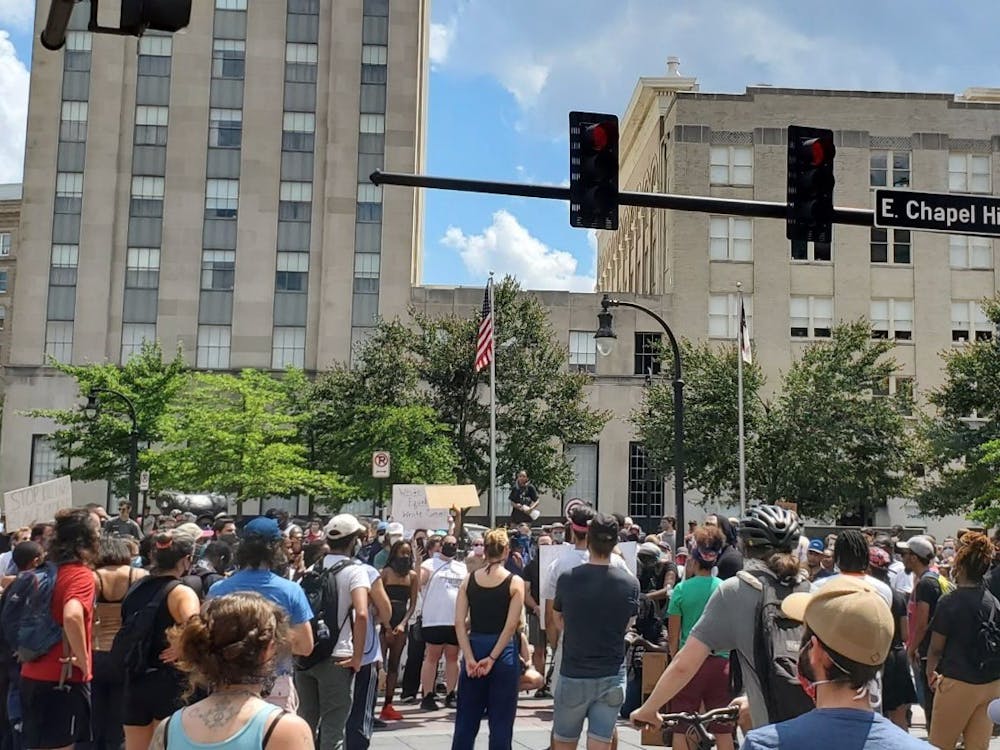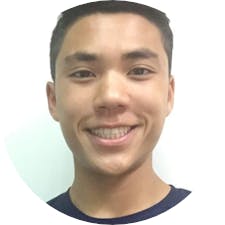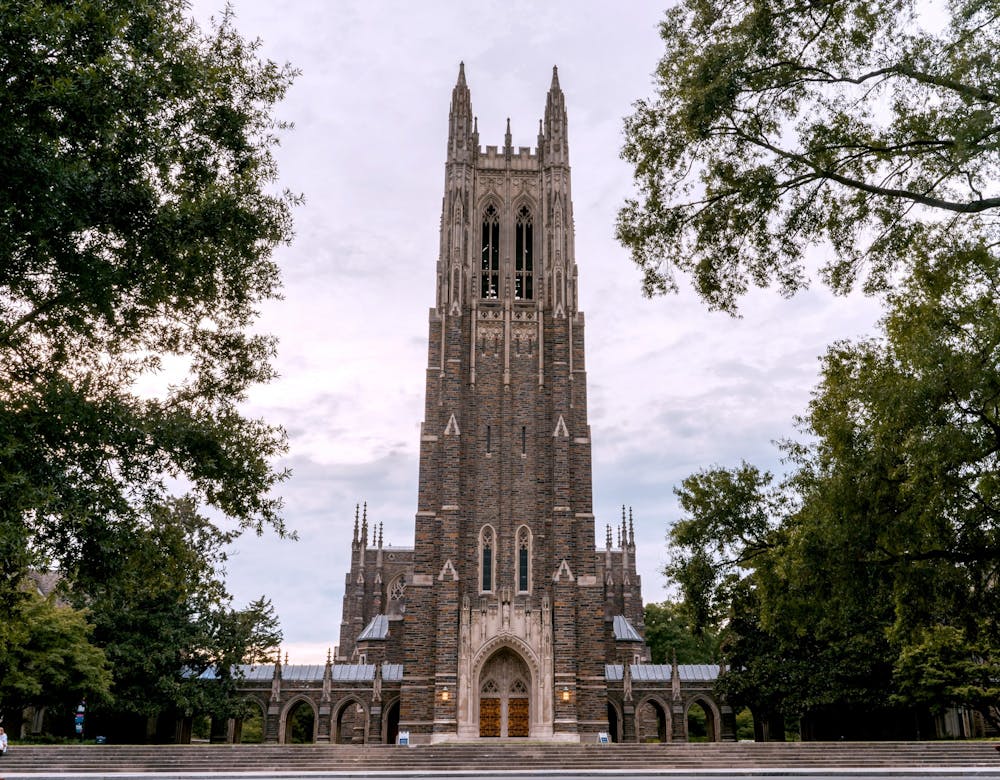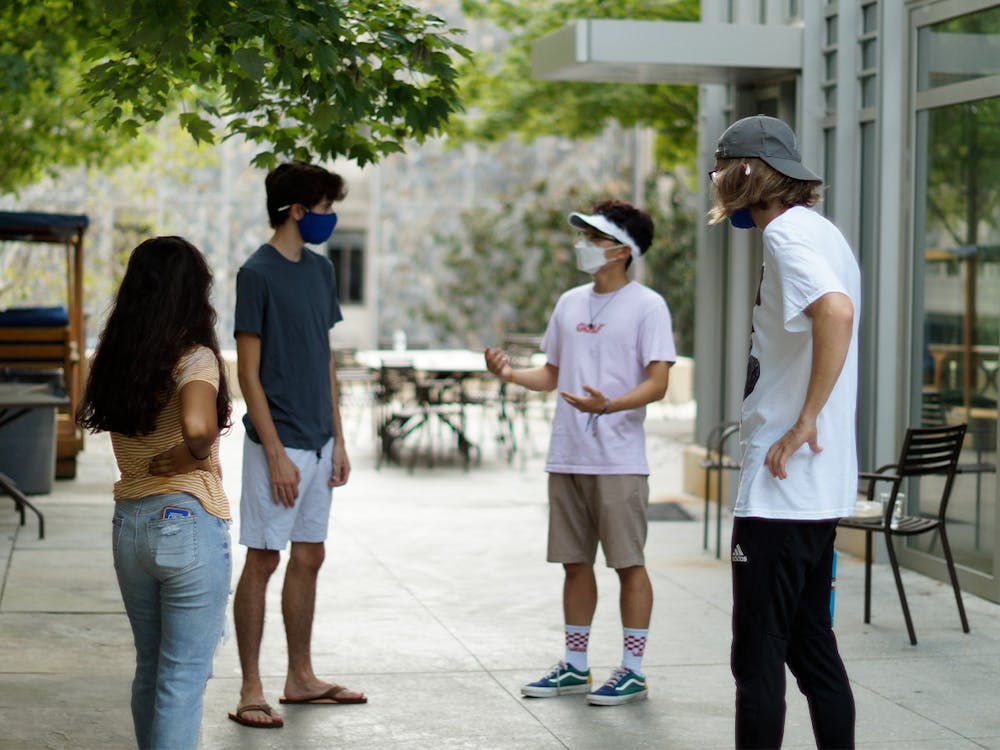During a year of changes and challenges, we at The Chronicle have been honored to continue our mission to serve the Duke community. In the 116 years since we began publication, the coronavirus pandemic is one of the events that has most disrupted life at Duke and the way we report on it. As we near the one-year anniversary of Duke’s March 10, 2020, announcement that classes would move online, we’re stepping back and considering how much our campus and community have changed. This special edition highlights just a few of the challenges our community rose to meet over the course of the past year.
We will not be able to revert quickly to the lives that we had before the COVID-19 pandemic, nor will we forget the lessons in resilience that we have learned. From being kept from Duke’s campus to being kept under strict guidelines while on it, students, faculty, staff, parents and other members of the Duke community have managed to forge new paths ahead. To commemorate this anniversary, we have pulled together some of our most important stories of a year that will leave its mark on all of our educations, relationships and lives.
-Maria Morrison, Chris Kuo and Anna Zolotor, project editors
Major events from the past year

In their own words: Students reflect on an extraordinary year
"We're never going to experience Marketplace when it's normal, or have these big events on East Campus, or even go to Baldwin Auditorium."
"I think this whole experience has really shown a few areas of strength about the Duke community."
The pandemic upended Duke students' college experience. We asked them how the last year has affected them.
From the archives: Students' experiences on March 10, 2020
March 10, 2020, when President Vincent Price announced classes would move online after an extended spring break, was a historic day for Blue Devils. Many students casually exchanged goodbyes before taking off for spring break, thinking they would see each other in just a week—only to realize days later that their time on campus had come to an abrupt end. Some would never walk across the quad as a student again.
The moment also signified the start of Duke’s uphill fight to adapt to life in the era of COVID-19, a battle that is far from over. From transitioning to online classes to socially distancing on campus in the fall, Duke has bid farewell to its familiar self for the foreseeable future.
To recount how this all began, we interviewed a number of Duke students. These are a selection of the stories they told: stories of ruptured plans, frantic texts, unexpected relief, a life-altering email. Stories that are each, in a way, our own.
Get The Chronicle straight to your inbox
Sign up for our weekly newsletter. Cancel at any time.
From the archives: Students join nationwide protests

The evening of May 30, 2020, sophomore Bethlehem Ferede saw tear gas float toward a crowd of protesters in Raleigh. It looked like a cloud of smoke, she said. But smoke wouldn’t account for what came next: the “blood-curdling” screams of people inhaling the gas.
Amid a pandemic that disproportionately sickened and killed people from marginalized groups, the killing of George Floyd threw racism in the United States into stark relief. Protests against racism and police brutality flooded the country after Floyd's death, and Duke students joined in.
From the archives: A first day of classes like no other

Franco Tompeterini prepared the Sprout eatery for breakfast. Connel Fullenkamp, professor of the practice of economics, paced the stage in the Bryan Center’s Griffith Film Theater in front of a crowd of 100 or so students enrolled in Economics 101. First-years Tommy Gress and Rachel Washart shared a meal at a distance, sitting at separate tables placed side by side.
On Aug. 17, 2020, Blue Devils went about their lives on the first day of a semester that had already been drastically changed by the ongoing pandemic.
From the archives: Remote teaching takes a toll on professors
Michael Munger, professor and director of undergraduate studies in the department of political science, has no fear of teaching in front of a camera. He fell under thousands of camera lenses when he ran for governor of North Carolina. What stresses him is the quality of his pandemic-strained teaching.
As the pandemic pushes classes out of classrooms and distorts Duke, it affects professors, too, as they must now adapt to new technologies and teach away from their familiar surroundings.

Chris Kuo is a Trinity senior and a staff reporter for The Chronicle's 118th volume. He was previously enterprise editor for Volume 117.

Maria Morrison was a digital strategy director for The Chronicle's 117th volume. She was previously managing editor for Volume 116.

Anna Zolotor is a Trinity senior and recruitment chair for The Chronicle's 118th volume. She was previously news editor for Volume 117.


